
African fashion history showcases a rich diversity of cultural expressions, from early garments like loincloths and wraps to the development of iconic textiles such as Bogolanfini, Kente, Adinkra, and the adoption of Ankara prints. Trade and colonization introduced new fabrics, blending with local styles to create unique fashion statements. Clothing in Africa has always been a medium for communicating social status, ethnicity, and identity, adapting over time to include both traditional and modern influences. Today, there’s a significant resurgence of interest in African fashion, both continentally and globally.
The New Vanguard of African Fashion
At the heart of this revival are pioneering designers who are redefining what African fashion represents. They seamlessly weave traditional elements with modern design sensibilities, crafting pieces that speak to both heritage and contemporary style. Names like the late Kofi Ansah, Duro Olowu, Lisa Folawiyo, and Oswald Boateng are synonymous with this movement, using their platforms to narrate stories of African pride through bold patterns and colors.
These designers are not merely creating fashion; they’re engaging in a cultural reclamation, moving beyond colonial shadows to celebrate African identity and resilience. Their influence extends from local celebrations to international runways, making African fashion a significant player in the global fashion narrative.
Global fashion trends for 2025 also reflect a dynamic blend of nostalgia, sustainability, and innovation, influenced by both consumer behavior and cultural shifts. Here’s a comprehensive look at some of the key trends we see from these designers on our radar for 2025.
Spotlight on 2025 Trends
As we look towards 2025, the global fashion landscape is shaped by:
Maximalism and Bold Colors: Moving from minimalism, vibrant colors like cherry red, deep blue, and bright yellows dominate.
Vintage Revival: Emphasis on sustainable, timeless pieces from past decades.
Gender Fluidity: Increased inclusivity with gender-neutral designs.
Sustainability: Focus on durable fabrics, waste reduction, and secondhand fashion.
Athleisure Evolution: Sportswear blends into everyday wear with a sophisticated twist.
Innovative Designs: New silhouettes, textures, and the return of skinny jeans.
Personalized Accessories: Customization for individual expression.
Cultural Themes: From boho chic to futuristic Y3K, with animal prints expanding.
Tech in Fashion: AI and data analytics for trend forecasting.
Influencer Impact: Celebrities and influencers drive trendsetting.
Keep in mind, fashion is in a constant state of flux, and although these are the anticipated trends for 2025, personal style remains crucial in how they’re embraced and expressed. The designers we’ve spotlighted are revolutionizing the narrative of African fashion, securing its prominence on the international scene. Each design they create weaves a tale of heritage, creativity, and cultural conversation. Here, we spotlight several of these talents as Guzangs’ 2025 selections to watch.
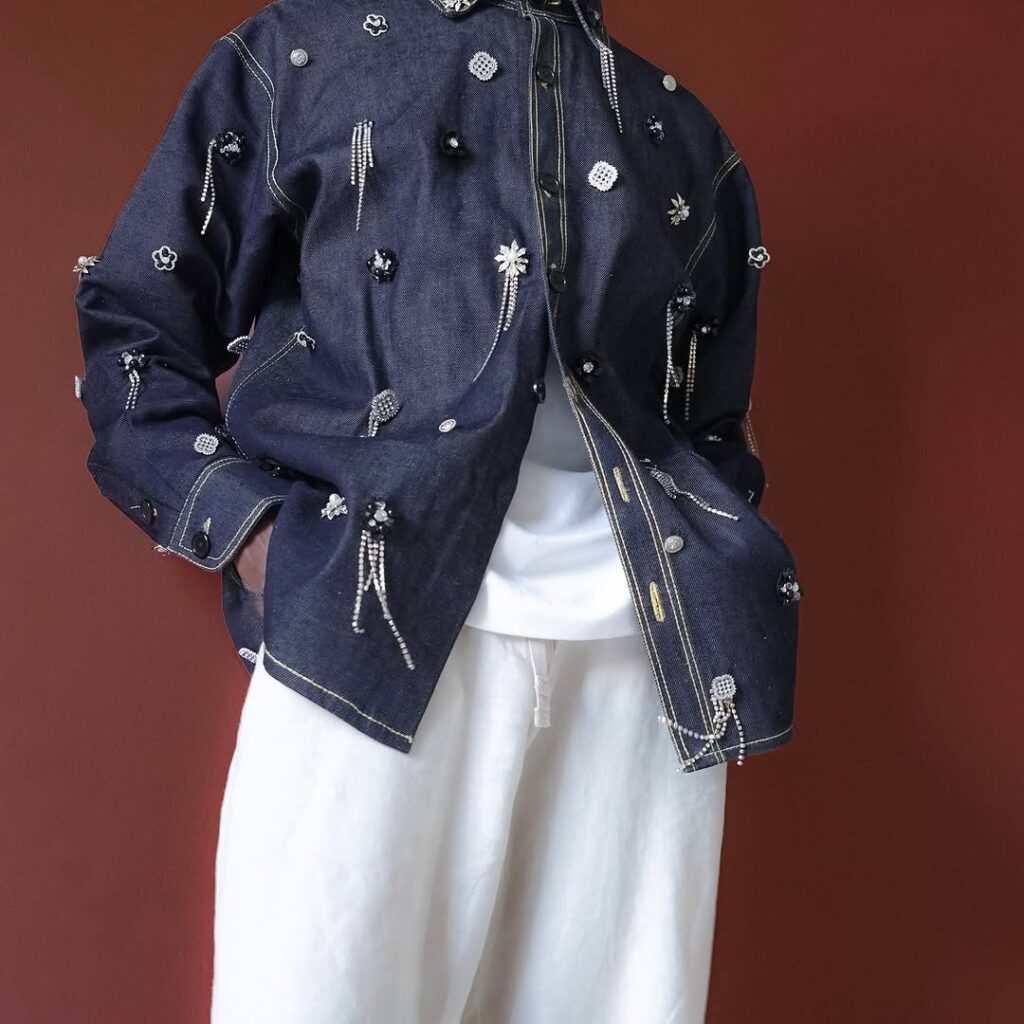
1. Maison Kébé owned by Cheikh Kébé, Senegalese prestigious Senegalese luxury fashion house renowned for its sophisticated ready-to-wear collections that elegantly embody Afro-Diasporic heritage. With grace and intention, we convey the enchanting essence of Afro-Diasporic culture and lifestyles through our carefully crafted collections, welcoming all to explore a beautiful journey of timeless fashion and cultural expression. Maison Kébé is more than a brand; it’s an odyssey of heritage, expression, and empowerment. The brand’s mission is to transform the worldwide view of African aesthetics, style, and luxury through compelling narratives, innovative design, and outstanding craftsmanship. The name Kébé pays homage to our designer’s father, a revered Senegalese master tailor whose legacy continues to inspire on both local and international levels

2. Nhlanhla Masemola, rooted in Johannesburg -South Africa, is a brand that epitomizes an Afrocentric style, marked by its crisp, experimental sartorial offerings. Each collection, numbered rather than dated, facilitates a fluid, timeless journey through the shifting sands of contemporary fashion.The designer’s Nhalanla aesthetic was profoundly influenced by the formidable women in his life—his mother, sister, and cousins—during his formative years.
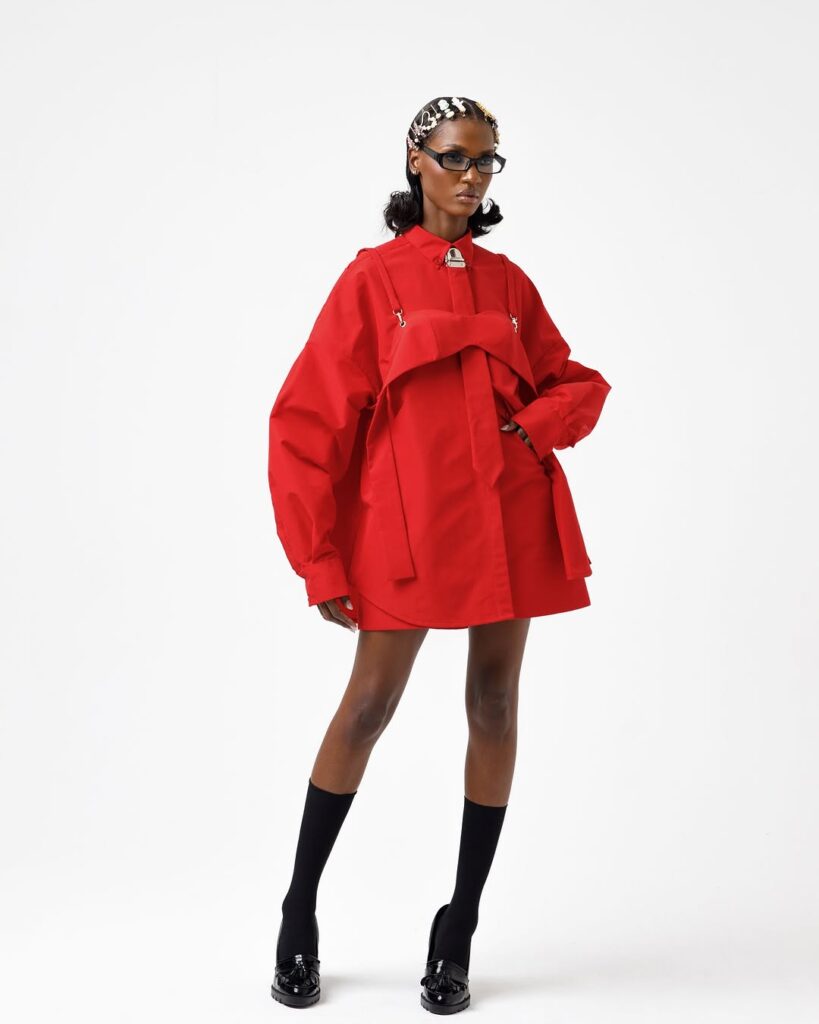
3. BIIO, led by Nathaniel Bio, is known for its avant-garde approach to womenswear. The brand is celebrated for its edgy silhouettes and contemporary style that challenges conventional fashion norms. Biio’s work emphasizes deconstruction and juxtaposition, blending sportswear elements with couture. Biio has been recognized for empowering wearers to express disruption positively through fashion. Their approach includes mechanisms in garments that allow for reinvention, reflecting the brand’s philosophy of constant evolution.
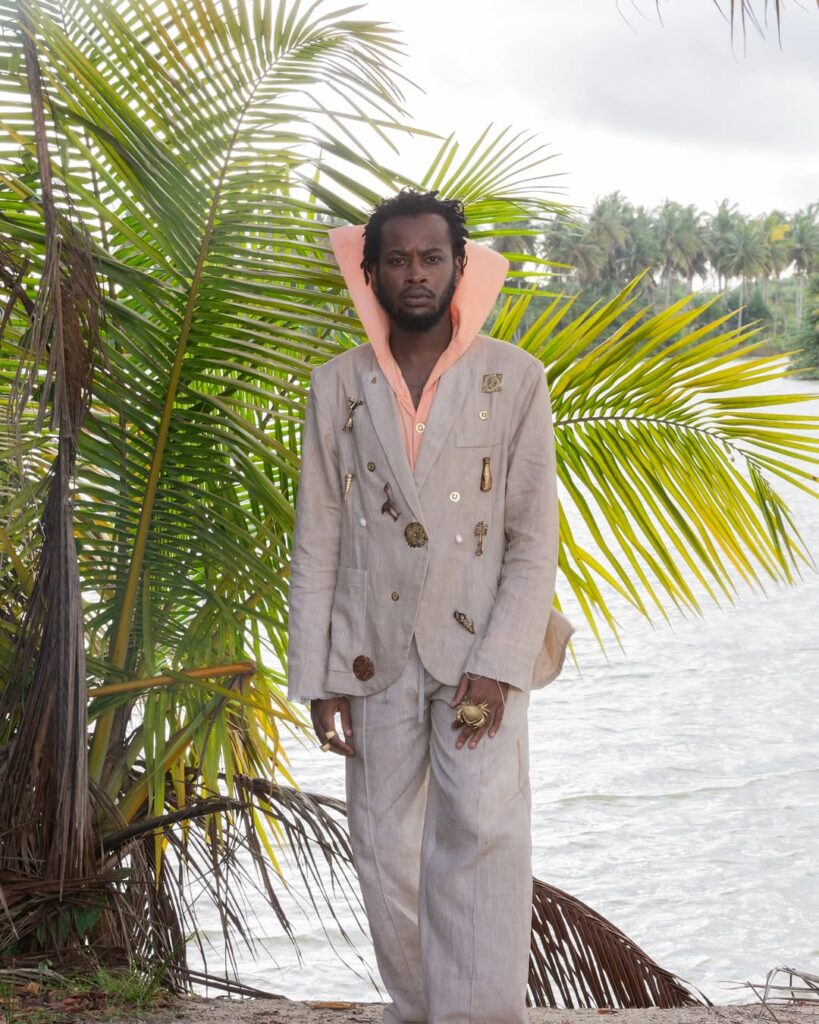
4. OLOOH founded in 2018 by Kader Diaby ,is the sartorial and life story of a 21st century Ivorian artist. Olooh means “ours” in the Senufo language.Their sustainable commitment to eco-responsible practices is reflected in every step of their production process, from the selection of materials to the distribution of our finished products. We strive to create fashion that respects both the planet and the people who inhabit it.All their pieces are handmade with organic and recycled materials, ensuring that each piece in our collection has minimal environmental impact. The fabrics they choose are sustainably sourced, like organic cotton, linen and other natural fibers, which are grown without pesticides or chemical fertilizers.
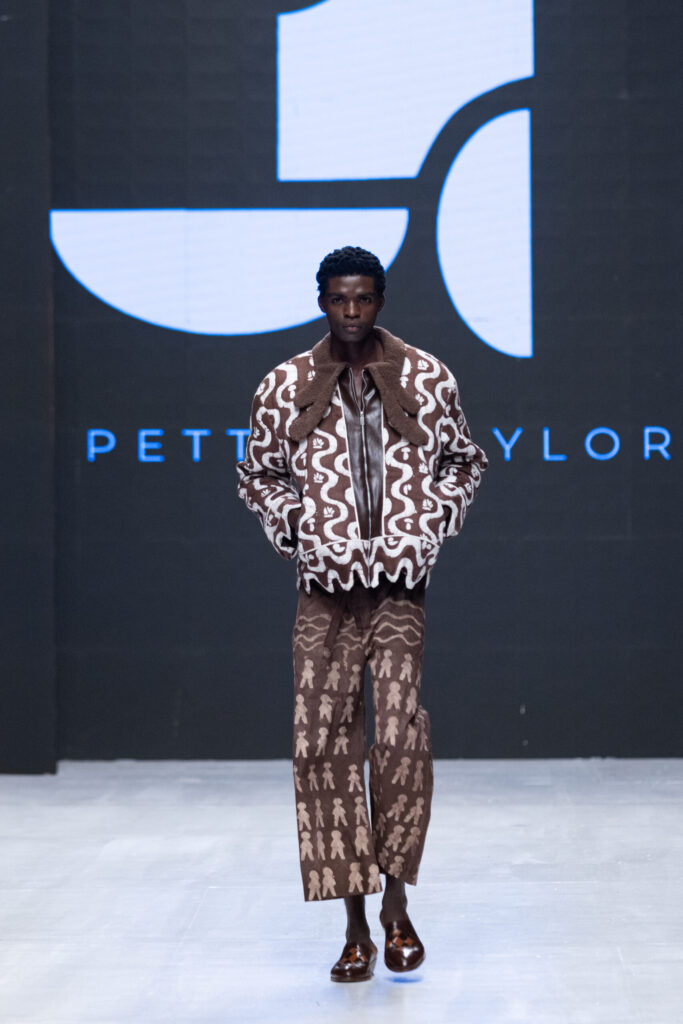
5. Pettre Taylor embodies the spirit of an urban explorer, with fashion serving as a conduit for cultural exchange under the creative direction of Nigerian Peter Acha. The brand masterfully interweaves intricate embroidery, handwoven textiles, and sleek modern silhouettes, honoring traditional craftsmanship while embracing contemporary design. This fusion results in garments that are both timeless and at the forefront of fashion, offering a unique blend of heritage and innovation.
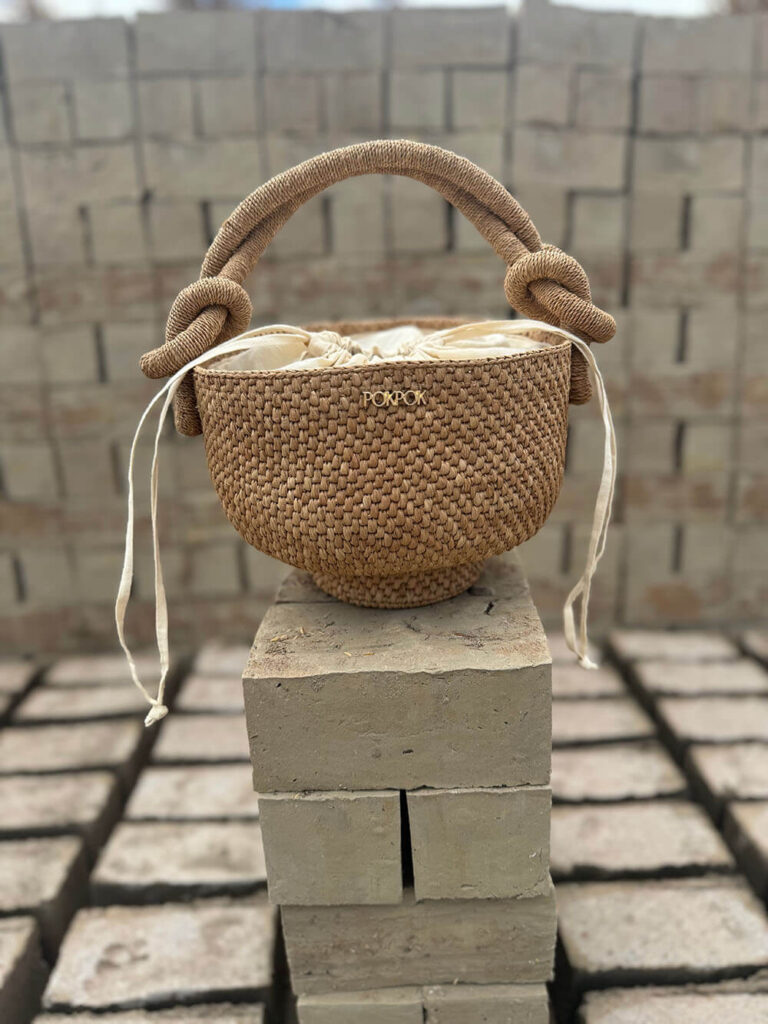
6. Pok Pok was established in 2012 by Andrianina and Fitia Randriamifidimanana, aiming to showcase Madagascar’s rich craftsmanship heritage while crafting a contemporary narrative that embodies freedom. Fueled by a passion for handmade creations, POK POK designs products that seamlessly blend modernity with tradition, drawing inspiration from the vibrant Malagasy roots and customs that surround them.
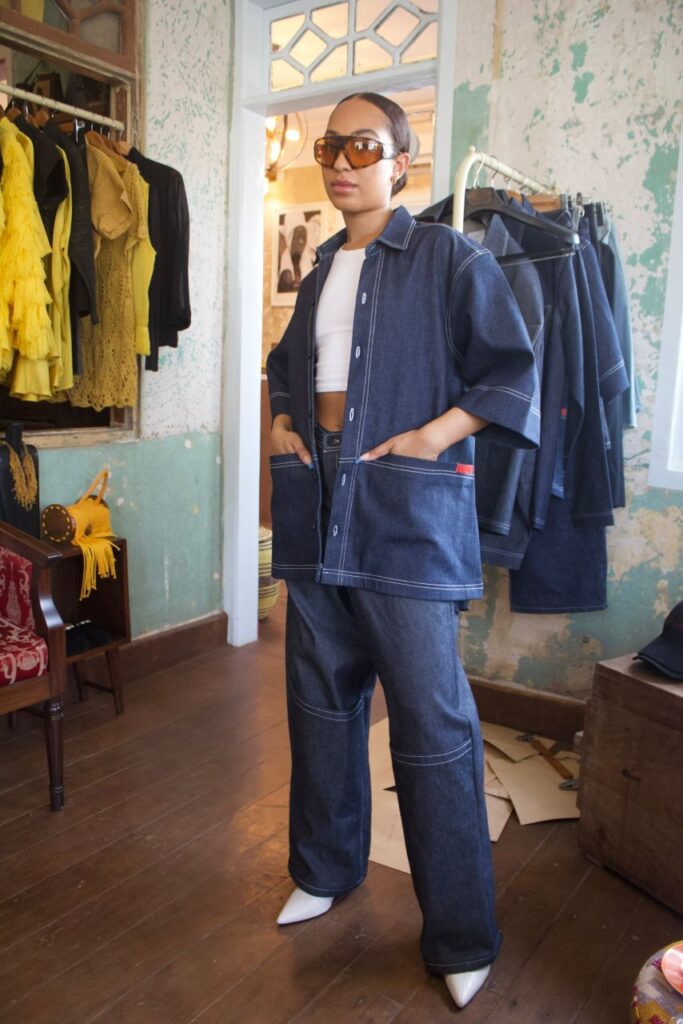
7. Sir Bilson is a small fashion brand in Ghana that prioritizes a pre-order basis as a way to ensure sustainable production. This approach allows them to focus on using high-quality materials while exploring the consistency of quality that comes from producing in smaller batches. Bilson aims to empower local artisans and promote sustainable fashion practices, making a significant impact, and aligning with the growing movement towards conscious and slow fashion.
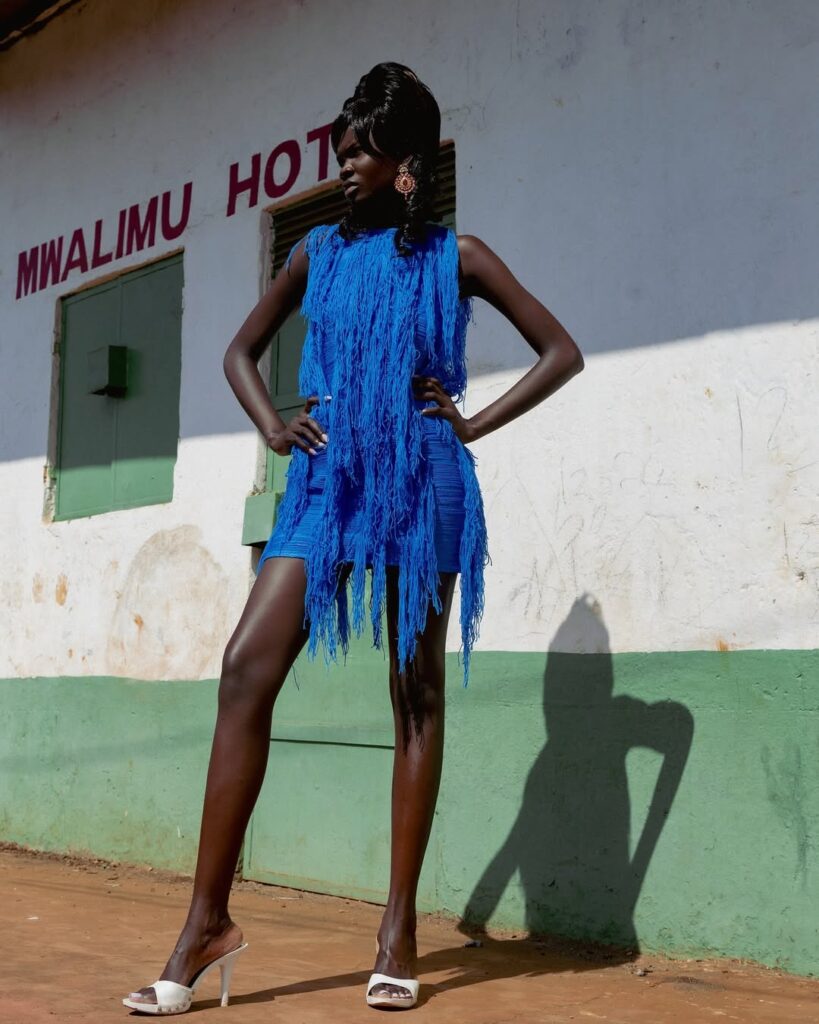
8. Sevaria is a brand located in Nairobi, Kenya, founded by Jamie Kamie. This brand is dedicated to crafting culturally inspired genderfluid pieces that celebrate the diversity of African cultures. By incorporating various silhouettes, textiles, styles, and creative direction, Sevaria aims to reflect the essence of different African tribes, religions, music, and art, all while encouraging individuality and self-expression.